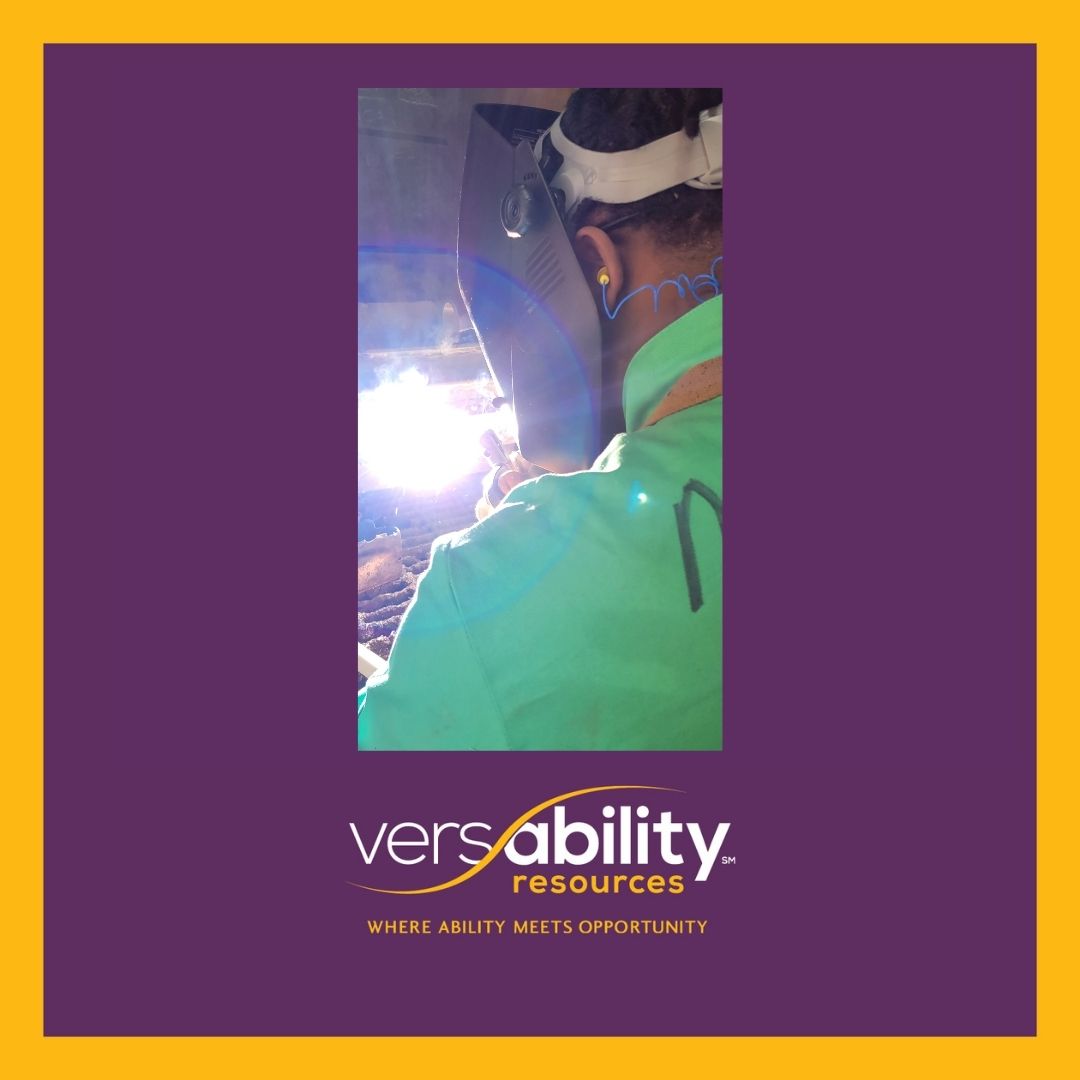New Future of Work Program Provides Career Opportunities to Untapped Talent Pool

VersAbility Resources’ new Future of Work program offers life-long career opportunities to the greatest untapped talent pool in the nation.
Only 19.1% of people with disabilities were employed in 2021, according to Bureau of Labor Statistics data. That’s a number VersAbility aims to increase with a new program that addresses barriers to employment for people with disabilities by developing wraparound support services.
The Future of Work program launched in January of 2022 thanks to a $200,000 Bank of America Neighborhood Builders Grant, and additional funders including Newport News Shipbuilding, Bernardine Franciscan Sisters Foundation, Sentara, Truist Foudation, and Dominion Energy.
Support services include dedicated job coaches onsite to facilitate people with disabilities successfully completing certification/credentialing and apprenticeship programs necessary to expand their career opportunities in high-demand industries. The program kicked off with a welding cohort at New Horizons Regional Educational Center. It’s an evening program offered at no cost to the students, who learn how to weld in classes that meet twice weekly for two hours.
Glenn, a student participating in VersAbility’s Future of Work program, feels great about the program. He feels that VersAbility has helped him gather the tools that he needs to get started in the welding field and that this opportunity wouldn’t have been possible without VersAbility’s help.
Tameka Davis, Assistant Director of Employment Services at VersAbility, said it’s important that the Future of Work program reflect what the academies from the public schools and local community colleges offer. “The trades are obviously going to be big,” she said. “We’re looking at what jobs are most prevalent in Hampton Roads and welding is a good career because of the opportunities at the local shipyards.”
The support from VersAbility includes helping those who complete the program find work. Davis also continuously connects with employers to develop additional partnerships that have employment potential. Current partners include New Horizons, Hampton Roads Workforce Council, Hampton and Newport News Schools, DARS, Old Dominion University, Virginia Peninsula Chamber of Commerce, Tidewater Community College and Community College Workforce Cooperative.
Surveys were sent out to gauge interest in other career fields that include administrative assistant, medical billing and coding, cybersecurity, culinary and certified nursing assistant.
“We’re gathering the results and trying to see what is popular from the students,” Davis said. “From there we can shape new programs.”
The Future of Work program isn’t limited to high school students. Career switchers and veterans are encouraged to apply. Anyone over the age of 18 with a documented disability is eligible.
Even though the program is in its infancy, Davis is gratified about the impact she foresees for Future of Work.
“We’re empowering individuals,” she said. “A large number of individuals with disabilities complete high school and then get lost between the cracks. By completing the Future of Work program, they can be utilized in various fields where there is a need. Being able to create the diversity and inclusion in the workforce is important”.
“Future of Work is another resource for people with disabilities along with sustained advocacy.”

